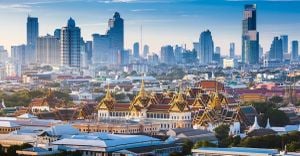The Saudi Arabian economy is undergoing remarkable transformation and growth, fueled by ambitious plans to diversify away from its long-standing reliance on oil revenues. The drive for economic development is part of the broader Vision 2030 initiative, introduced by Crown Prince Mohammed bin Salman, which aims to build a more sustainable and diversified economic framework.
Recent reports show significant progress, with the government making concerted efforts to attract international investors and boost the private sector anew. The Kingdom has identified several key sectors as instrumental for future growth, including technology, tourism, and renewable energy. These sectors are expected to provide new job opportunities and economic resilience as the nation charts its course through global economic volatility.
According to the Saudi Press Agency, the Minister of Finance emphasized the government's commitment: "The Saudi government is committed to transforming the economy under Vision 2030." This transformative vision includes the establishment of various economic zones, such as the King Abdullah Economic City, which aims to create thriving environments for businesses and startups.
Investment opportunities are being actively promoted both domestically and internationally, with incentives for investors to engage with local businesses. An economic analyst highlighted the potential for growth, stating, "Investment opportunities abound as we look to diversify from oil revenues," as he stressed the importance of these new directions for the Kingdom’s economy.
The tourism sector is seen as one of the most promising areas for expansion. The Saudi government has undertaken steps to open up the country to international tourism, aiming to attract millions of visitors by promoting the rich cultural heritage and historical sites. The recent introduction of e-visas for visitors from more than 49 countries is expected to boost tourism, contributing significantly to the economy.
Similarly, the renewable energy sector is receiving significant attention, aligning with global trends toward sustainability. The Kingdom aims to generate 50% of its electricity from renewable resources by 2030. Projects such as the Solar Energy Initiative and wind energy farms are already underway, reinforcing its commitment to reducing dependence on fossil fuels.
Such developments are bolstered by substantial investments from local and international businesses. The government continues to encourage private sector participation through various reforms and legislative changes, ensuring the business environment is conducive to growth.
Yet, these exciting prospects come with challenges. While the economy is diversifying, the issue of socio-economic disparity remains prevalent. Experts suggest the next steps for the Kingdom must include addressing these inequalities to maintain stability and growth. The government recognizes the importance of creating jobs and upholding social equity to establish sustainable progress.
Looking forward, the Saudi Arabian economy appears set on the path to significant transformation, providing potential benefits not only for its citizens but also for global investors eyeing the burgeoning market. The transition requires careful management of resources and opportunities, ensuring the fruits of economic diversification reach all Saudis.
With such ambitious plans on the horizon, the world is watching closely to see how Saudi Arabia navigates this economic metamorphosis, balancing modernization efforts with the challenges of the present. The success of these initiatives could redefine the Kingdom’s position on the global economic stage and serve as a blueprint for other nations pursuing similar paths.



